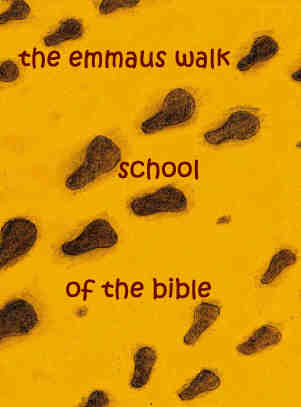
THE EMMAUS WALK PRESENTS: Quiz for "An Introduction to Biblical Science"--An Opinion by Duane L. Smith
True or False
![]()
Part One
1. Theism is equivalent to monotheism, or belief in one true, supreme God, according to Unger's Bible Dictionary. T or F
2. According to Genesis 1:1, God is not sovereign and transcendent but part (a powerful part) of the created order of the universe. T or F
3. A miracle, in the opinion of the essayist, involves a temporary suspension of natural law or intervention by God. T or F
4. The essayist believes the universe is a closed system and the entire cosmos is the first cause, that is, it spontaneously generated itself. T or F
5. The genius Albert Einstein detected no reasoning power in the workings of the incomprehensible universe. T or F
6. Only Genesis describes the universe as testifying of a divine origin.
7. The Second Law of Thermodynamics deals with the decrease of available energy (entropy), though the amount remains constant. T or F
8. The Apostle Peter described this state of entropy in which the universe is seemingly caught. T or F
9. The essayist believes God created the world in a state of entropy, just as it is now. T or F
10. After entropy set in with the Fall of Adam and Eve into sin, creation moved gradually from a state of order to an increasing state of chaos. T or F
11. (Bonus) The Resurrection of Jesus Christ, in the belief of the essayist, completely reverses the Second Law of Thermodynamics with a gradual, "ripple" effect. T or F
Part Two
12. Scientists call a mysterious force that holds the universe together "cosmic glue." T or F
13. The essayist calls it "grace", meaning the mysterious force that holds everything together. F or F
14. Paul writes that everything was created through Christ and for Him. T or F
15. Colossians 1:15-17 states that the Father in heaven holds everything together and in Him all things hold together, or "consist." T or F
16. The Greek word "phoreo" descries the decrease of available energy, or entropy, in the universe. T or F
17. If Christ bears, carries, and upholds the universe, that means THAT God can still decide to destroy the world independent of mankind's use of a global nuclear war (according to the essayist). T or F
18. The Apostle Peter describes a global nuclear destruction of the earth in which everything is burned up and melts. T or F
19. The essayist believes that if God were to withhold his grace and power we will see 2 Peter 3:10-13 fulfilled. T or F
20. The essayist believes the Second Law of Thermodynamics will apply to the new heavens and the new earth. T or F
21. (Bonus) The essayist gives I Corinthians 15:35-57 for more information on the Second Law of Thermodynamics. T or F
![]()
 Part I, "An Opinion about the Gifts as Seen Today" by Duane L. Smith
Part I, "An Opinion about the Gifts as Seen Today" by Duane L. Smith
 Parts I & II, "An Introduction to Biblical Science," An Opinion by Duane L. Smith
Parts I & II, "An Introduction to Biblical Science," An Opinion by Duane L. Smith
 The Emmaus Walk Home Page
The Emmaus Walk Home Page
![]()
Text: (c) 2007, Estate of Duane L. Smith Estate, All Rights Reserved
Format only: (c) 2007, Butterfly Productions, All Rights Reserved

![]()